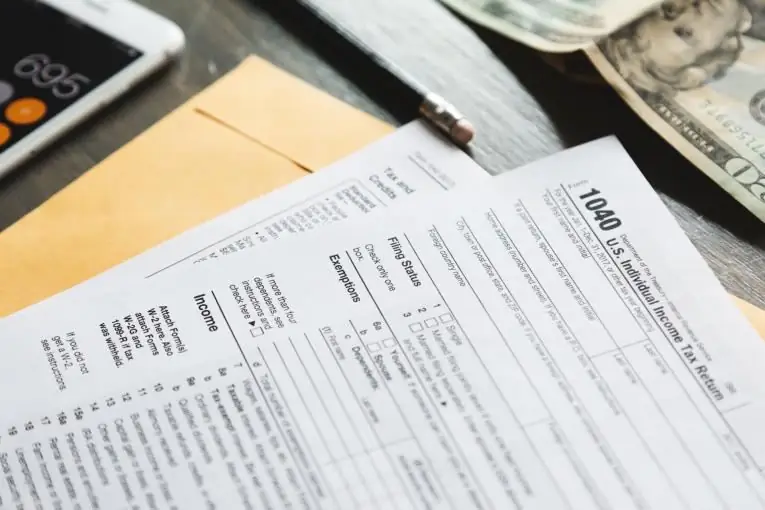2026 Author: Howard Calhoun | calhoun@techconfronts.com. Last modified: 2025-01-24 13:10:28
When carrying out construction work, the method is very often used when the contractor uses materials provided by the customer to build the object. This concept is called "tolling materials". This definition is often found in accounting documents. Legislatively prescribed requirements, according to which the transfer of materials to be provided, as well as the organization of their accounting and write-off. Of course, nothing just happens. The procedure for the transfer of tolling materials in construction is regulated by Art. 745 (p. 1) of the Civil Code of the Russian Federation.

Understanding legislative documents
The existing MU for accounting, which were approved on December 28, 2001 by order of the Ministry of Finance under No. 119n, give a clear definition. Tolling materials are those materials that the contractor has accepted from the customer for their subsequent processing (processing), as well as the implementation of other work or the production of products without paying the price of these materials and with unconditionalan obligation to fully return to the customer the processed building materials, the delivery of manufactured goods and the work performed.

The fact that the customer retains ownership of the specified purchased products (not of his own production) (contracting materials) is reflected in the reporting. Raw materials received on this basis (tolling) are accounted for in a separate line from the property owned by the contractor, and are carried out on an off-balance account (clause 2 of article 8 of law 129-FZ, dated 11/21/96). The account number is 003.
Prepare supporting documentation for your activity
The law requires that all operations of the economic plan carried out by the organization are drawn up with appropriate supporting documents (Article 9, Clause 1 of the aforementioned law). It follows from this that, by providing materials to be supplied, the customer is obliged to draw up the specified procedure according to the invoice of the appropriate form (No. M-15). A special mark must be made on it.

In turn, the contractor draws up the specified purchased products with an incoming order No. M-4, which also indicates that the specified resources are give-and-take materials.
Practicing accounting
The write-off of the cost of materials that are tolling is carried out upon transfer of the erected object to the customer in a special form (“Credit 003”). The finished object must be transferred to the customer according to the appropriateThe act of work performed (No. KS-2), which is confirmed by the issuance of a certificate for the number KS-3. The forms of these documents were approved on November 11, 1999 by Decree No. 100 adopted by the Federal State Statistics Service of the Russian Federation. Moreover, the procedure for reflecting the cost of customer-supplied materials is not specified in these documents.
Therefore, when drawing up the above documents, the business custom is applied. From this follows the practice of filling them out, which requires filling out a special section in Form No. KS-2, which lists the resources received from the customer and their cost. Therefore, in the final line (TOTAL), in which the cost of work performed by the contractor is indicated, the cost of materials that are tolling is not taken into account. Therefore, the formation of the cost of the work performed is not affected. The list of these materials, given in this form, is purely reference (informational) in nature.
Certificate in the form No. KS-3 is issued on the basis of the information set out in the Act and KS-2, and is the main document when paying for work performed with the customer. In this certificate, customer-supplied materials in construction and their cost are not given. Their value is also not considered as an object of taxation (VAT).
Thus, by transferring ownership rights to the materials referred to give and take without transferring to the contractor, the customer makes settlements with him for the work performed on the certificate of form No. KS-3, in which these materials are not mentioned.
Recommended:
Accounting documents are The concept, rules for registration and storage of accounting documents. 402-FZ "On Accounting". Article 9. Primary accounting documents

Proper execution of accounting documentation is very important for the process of generating accounting information and determining tax liabilities. Therefore, it is necessary to treat documents with special care. Specialists of accounting services, representatives of small businesses who keep independent records should know the main requirements for the creation, design, movement, storage of papers
Planning and economic department: its functions and tasks. Regulations on the planning and economic department

Planning and economic departments (hereinafter PEO) are created for the effective organization of the economy of organizations and enterprises. Although often the work of such departments is not clearly regulated. How should they be organized, what structure should they have and what functions should they perform?
How to properly arrange a mortgage?

Mortgage registration is carried out according to the provided documents of the borrower. Banking organizations offer the population such a service as registration of an apartment on a mortgage. The procedure for registration involves the provision of a package of documents for the ongoing sale and purchase transaction, it is also necessary to assess the housing. Each banking organization has its own conditions for providing documents. The borrower is advised to study the terms of the contract in detail
Materials released to production (posting). Accounting for the disposal of materials. accounting entries

Most of all existing enterprises can not do without inventories used to produce products, provide services or perform work. Since inventories are the most liquid assets of the enterprise, their correct accounting is extremely important
Tolling scheme - what is it? Accounting for tolling processing operations

Civil legislation of Russia provides for building relations between enterprises on a give-and-take basis. What is its specificity? How is the accounting of transactions carried out within the framework of the relevant scheme of legal relations?

